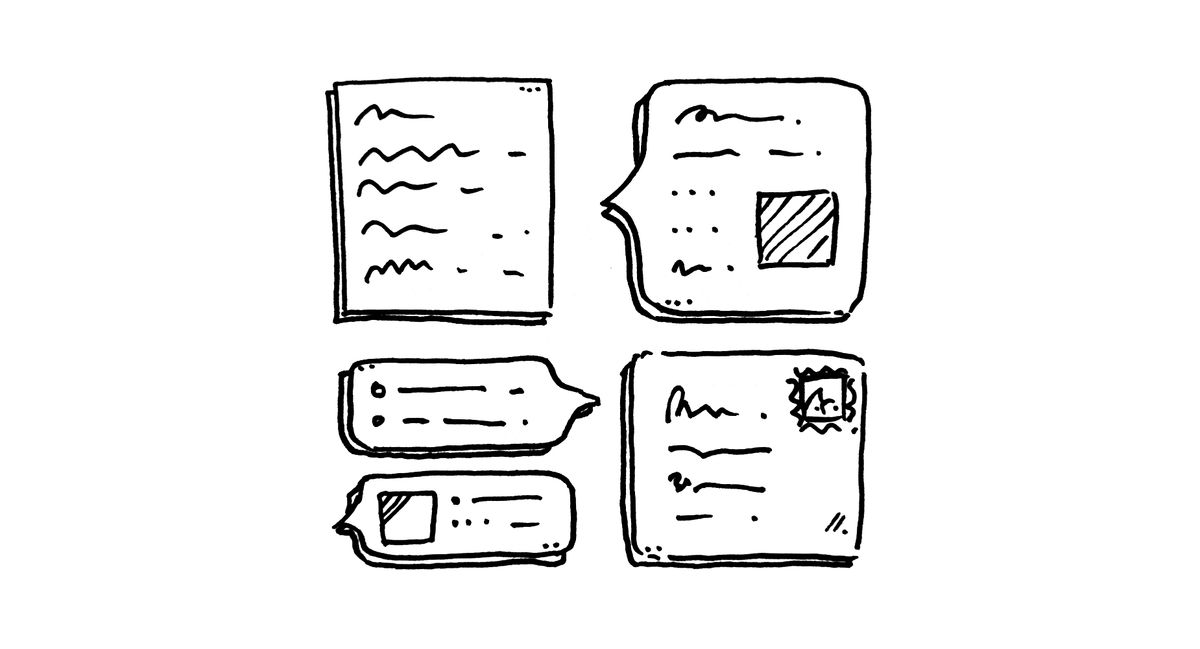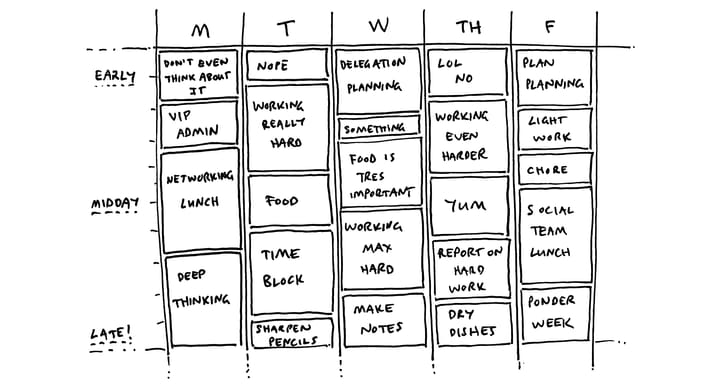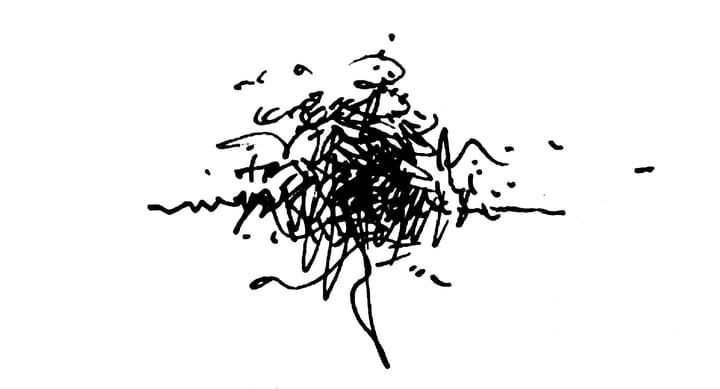All the places you have to go to message the people that you know

Communication over the internet, while near instantaneous, has somehow become less convenient than the old way, with the paper and the envelope and the stamps. (Where did the stamps go, again? Was it... top right?) Once we would have managed a single mailbox, yet now we must manage a dozen digital ones, and if we are to message someone we must know not only their “address”, but also the platform on which they accept messages.
Paradoxically, we may not even know where to message a person to confirm where to message them. Are you on Signal? Or Messenger?
A person might send their message to you via somewhere different each time, seemingly on a whim. One day it’s email, next it’s WhatsApp, next it’s... Instagram? We’ve completely fractured communication. The joy of modernity! We’ve made such progress!
So: Where the heck are all the messages? Answer: all over the bloody show. 👇
Originally a popular messaging app adopted by zillions of people, who realised that phone communication need not require a SIM card or email address. And that maybe privacy should be a thing. WhatsApp is both the place where you can find outdated group message names like “Crew goes 2 da Beach 2018!” and also the place where many (most?) of the people are, making it a reasonable default option if you’re trying to reach someone new. Because that’s the thing, isn’t it? Messaging requires recipients. Otherwise you’re just firing missives into the abyss.
Messenger
For a while people came to view Facebook as essentially the entire internet, a walled garden which could provide all the digital sustenance one could possibly need. When Facebook does things like gobble up WhatsApp (“All your messages are belong to us!”) it certainly looks like they want to keep it that way. If people want to keep abreast of the new pets their high school friend’s sister’s neighbour took to the local beach last week, they need to maintain a Facebook profile. And believe me, they do. Having maintained a critical mass of people over such an extended period, Facebook Messenger is the place where people who haven’t talked to you for 20 years reach out just to see if you are still alive. (This actually happened to me recently.)
Instagram is for sharing pictures. Well, also for those temporary story things which you can’t get rid of unless you watch them, like some form of video extortion. And you can message people on Instagram, although I don’t know why. Messages I’ve received on Instagram have gone unanswered for years at a time – the digital note in the bottle, adrift at sea. Perhaps people are keeping the internet guessing by distributing their private information between Facebook, WhatsApp and Instagram. Wait, hold on a second...
Signal
For the tech-savvy, the privacy-conscious and the paranoid. It’s reasonable to value privacy, by the way. In general, people would do well to value their privacy more highly, and demand it of their digital services. But I wonder how many punters are merely sending highly encrypted banalities: “Hey, can you get some milk on the way home?” Or critical correspondence that gets missed because you were out of internet coverage for a time. “Um, was it me who was going to pick up the kids today? Wait: did both of us forget to pick up the kids?!”
SMS, text message
For people who just can’t be bothered with the whole “Which messaging app?” question, and just want to know that their sentences will be directed straight to the recipient’s phone. You know, like when people just had the one way to contact them. One number. One address. Or: for people who have run out of mobile data, and have just copied and pasted their message out of Instagram into a text message.
Hero, Seesaw, or whatever random software schools force parents to use
For teachers and schools who think it’s progressive to cloister away all communications behind yet another novel login. From what I’ve experienced, this is universally terrible software, creaking at the seams, which will make you beg just to be sent a simple email or a text message. (If anyone has ever had the pleasure of using a good one, do tell.) To add insult to injury, you are forced to endure messages in multiple places: I receive emails from Hero which do nothing but tell me that there’s a message waiting for me on Hero, with a tantalising teaser of the first half-sentence. Hoorah!
Slack, or whatever software your workplace requires you to use
“Great, now we have two problems.” This is how a colleague described Slack to me, back when it started. Meaning: email plus Slack. Calling Slack a “problem” was prescient. It’s now how workplaces try to mash ideas together, hoping for magic by proximity – the same kind of logic that gave us open-plan offices, where now, as video conferencing technology has caught up, we are all doomed to sit around listening to people attend individual meetings elsewhere on their computers, each talking loudly, with headphones on, to a different set of people. Slack: a free-flowing, all-threading, heaving stream-of-consciousness, a mass of... generally absolute natter. The previous marketing slogan for Slack was “Where work happens”. Still waiting to see any evidence of this.
For traditionalists, people only just starting to grapple with the internet, “new luddites” who are cool with tech as long as it’s old, and folk who’ve run the gauntlet on all the other solutions and are coming back round to the realisation that maybe email was... never really that bad.
Physical mail, letters
These days the only physical mail you’ll likely get equates to ad catalogues, tired local newspapers where the headline story is that someone down the road grew an apple that looks like a whale, or bills. In a cruel twist, utility companies push for you to get emailed your bills, but the moment you acquiesce, other companies wanting to verify your identify will require a physical utility bill with your name on it. Thus you are trapped in a never-ending – and frightfully dull – battle for letterbox real estate. If you so happen to have a friend or family member who will actually send you a letter, then hold this beautiful anachronism of a person close. And respond to their letters with your own.
Did I miss any? Have a different view? Add your own in the comments. 👇



Comments ()